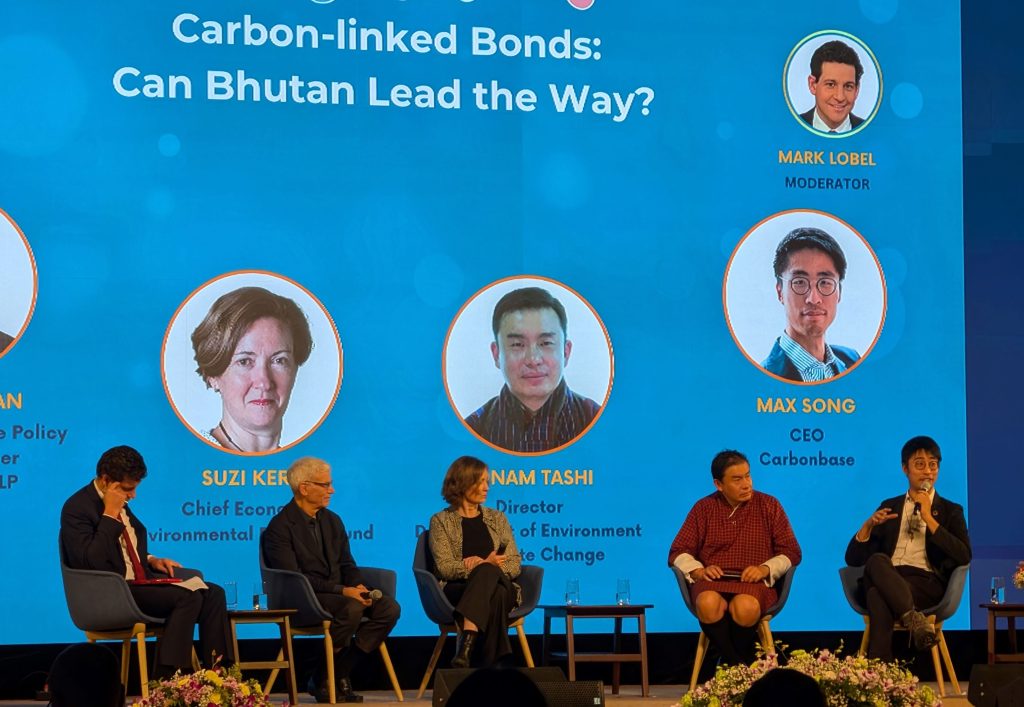I’ve always been fascinated by Bhutan, the “last Shangri-La,” a place that measures its progress not by GDP, but by Gross National Happiness (GNH). There’s something deeply intriguing about a state that prioritizes well-being over wealth. As one of the last bastions of Himalayan Buddhism, Bhutan held an almost mystical allure for me.
So, when some friends told me a few months ago about the upcoming “Bhutan Innovation Forum,” I knew I had to experience it firsthand. Organized under the patronage of the King, the forum was designed to chart a fresh course for Bhutan’s future, bringing in outside innovators and investors. The goal? To lay the foundation for the Gelephu Mindfulness City.
It started with a scenic plane ride from Delhi to Paro, which passed close to the mount Everest and which ended in sharp turns to land on an airstrip flanked by peaks as tall as 5,500 meters.
After landing, the vibrant aesthetic of Bhutan struck me immediately. Every building, without exception, was adorned with colorful patterns that seemed to narrate stories from ancient scriptures.

The Bhutanese people, with their respectful and kind demeanor, reflect the nation’s collectivist and Buddhist culture. Beneath their reserved politeness, however, lies a bold and spicy undercurrent—much like their cuisine. It’s as if they’ve combined the best of Japanese and Italian attitudes: a soothing kindness as a baseline, but with a zesty gradient to explore if you like it.
Having traversed half the country, I can say it’s almost entirely mountains, with very few plains. This shocked even me as a Swiss person. The geography hardly allows for industrial growth. Bhutan’s economy is mostly based on agriculture and forestry. Its mountains provide potential for hydroelectricity, but the country is heavily dependent on India for labor, financing, and military support. Bhutan also imports most of its goods, resulting in one of the highest trade deficits in the world (20% of its GDP).
Against this backdrop, the King launched the idea of the Gelephu Mindfulness City (GMC) in 2024. This city is envisioned as a new hub of innovation near India. The project stands as a beacon of hope for Bhutan—a country that, despite its modest wealth, shows relentless optimism. Bhutan’s GDP per capita is comparable to nations like Palestine and Bolivia.
The project is still in the idea stage. The initial governance team has been assembled, and they’re starting to look at institutional and regulatory reforms, as well as creating a special economic zone to make the city appealing to investors.
The innovation forum itself was a blend of 70% empowering idealism and 30% sobering realism. As someone rooted in operations, I found myself oscillating between inspiration and skepticism. Questions around Bhutan’s debt ceiling for funding such infrastructure and the cultural impact of potentially doubling the nation’s population remain unanswered to me.
A personal highlight was a small group audience with the King, who displayed unexpected personableness and cracked jokes as if he were one of us. When I asked him, “What are the behind-the-curtain challenges to building a new city?” he replied, “People, Governance, and Debt.” A clear-eyed vision of the challenges that lie ahead of him.
The mix of 70% idealism and 30% realism actually seems fitting. Bhutan harnesses boldness to defy the odds. It is re-defining its own rules with a large experiment. This might remind us of Deng Xiaoping, the Chinese leaders who in the 1980s led with optimism against ideological opposition. His Special Economic Zones transformed Shenzhen from a small fishing village into a major global technology hub.

Some of my friends living in London and San Francisco declared themselves ready to move to Bhutan after their first trip, inspired by the vision and enamored with the pervasive kindness.
This delicate balance between embracing change and respecting tradition is what makes Bhutan truly admirable. It’s a narrative I explored further in a subsequent piece, I dived into the tension between buddhist spirituality and modernization.